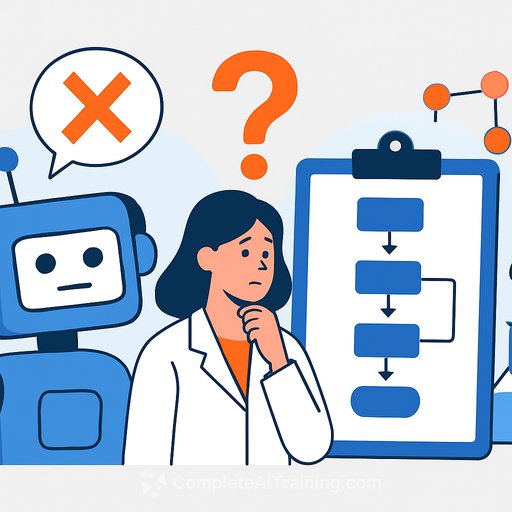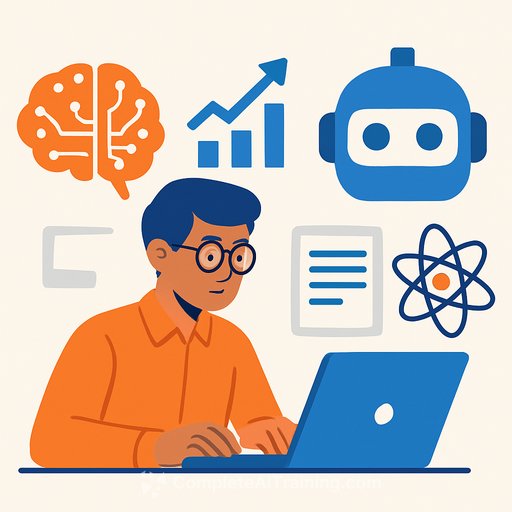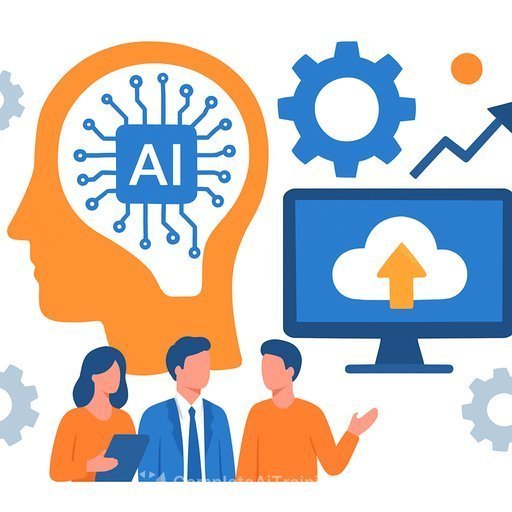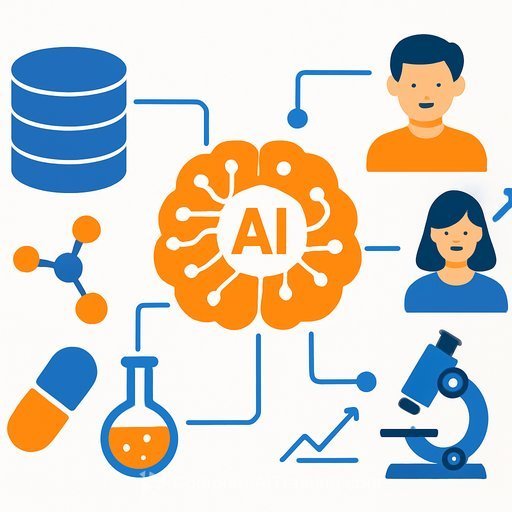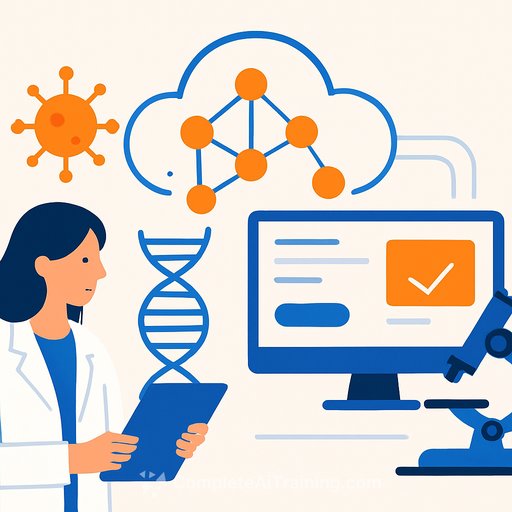Study finds AI models stumble on complex scientific reasoning
Researchers from IIT Delhi and FSU Jena report a clear pattern: leading multimodal language models handle basic chemistry and materials tasks, but break down on multi-step scientific reasoning. The gap is large enough that fully autonomous research remains out of reach for now.
The work, titled "Probing the Limitations of Multimodal Language Models for Chemistry and Materials Research," examined where vision-language systems succeed and where they fail. The team also released MaCBench, a standardized benchmark to stress-test scientific capabilities in realistic settings.
What the team found
Models do fine on simple visual analyses and recall-style prompts. But when a task needs chained reasoning, domain priors, or careful integration of multiple data sources, error rates jump.
"What makes our research unique is not just measuring performance, but systematically uncovering why these models fail," said Nawaf Alampara (FSU Jena). "We found that models consistently struggled with tasks requiring multiple reasoning steps, and their performance strongly correlated with how frequently specific information appeared on the internet rather than with actual scientific understanding."
Why this matters for labs
These systems can speed up routine work, yet they can mislead you on the hard parts - the exact places where rigor matters. That means human oversight isn't optional; it's required for safety-critical decisions and any claim that depends on multi-step inference.
"Our work provides a roadmap for both the capabilities and limitations of current AI systems in science," said Indrajeet Mandal (IIT Delhi). "While these models show promise as assistive tools for routine tasks, human oversight remains essential for complex reasoning and safety-critical decisions. The path forward requires better uncertainty quantification and frameworks for effective human-AI collaboration."
Practical steps you can use now
- Scope tasks: use models for data extraction, figure parsing, and first-pass summaries; keep experts in the loop for interpretation and design decisions.
- Force reasoning transparency: require chain-of-thought style plans in sandboxed environments and check intermediate steps against known constraints.
- Add retrieval and citations: ground answers in your lab's validated sources; flag unsupported claims by default.
- Quantify uncertainty: calibrate with held-out tasks; report confidence and abstain when signals conflict.
- Adopt red-team protocols: test failure modes (spurious correlations, unit errors, data leakage, out-of-distribution cases) before deployment.
- Write decision playbooks: define when automation is allowed, when escalation is mandatory, and what evidence is acceptable.
About MaCBench
The team released MaCBench as a freely available evaluation suite for multimodal scientific tasks. It emphasizes realistic chemistry and materials problems, including those that require multi-step reasoning rather than pattern-matching. "This benchmark fills a critical gap in our understanding of AI capabilities in science," noted Prof. Krishnan, with Jablonka adding that open access should drive more rigorous evaluation before use in research settings.
Where to go next
- Review risk and governance guidance, such as the NIST AI Risk Management Framework, and align your lab SOPs.
- If you're upskilling your team on safe, effective AI use, see curated options by role at Complete AI Training - Courses by Job.
Bottom line
Current multimodal models are useful assistants for routine scientific tasks but unreliable soloists for complex reasoning. Treat them like sharp tools: great for speed, dangerous without guardrails. MaCBench gives the community a way to measure progress and set higher standards before placing AI systems in the critical path of research.
Your membership also unlocks:

